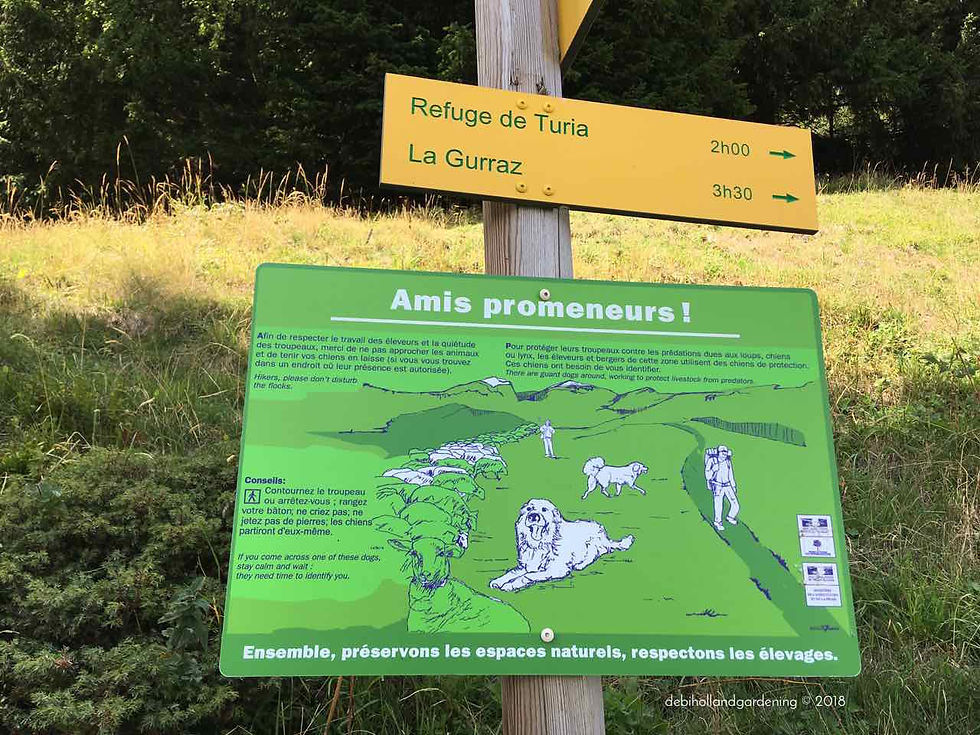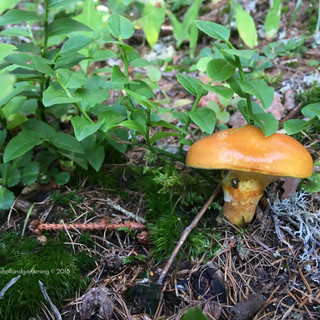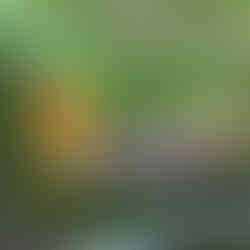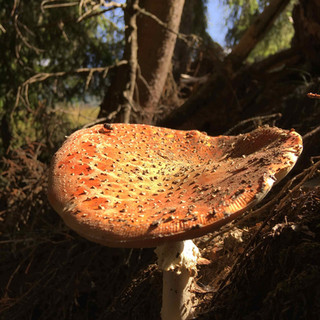Finding Fungi
- Debi Holland

- Feb 5, 2021
- 4 min read

In the summer of 2018 I travelled to the French Alps on a family holiday of downhill mountain biking, hiking and plant hunting. From wildflowers to wildlife, fresh mountain air to fungi the Tarentaise valley was teeming with diverse natural treasures. First posted in October 2018 I felt it was time to re-share Finding Fungi and enjoy a photographic reminisce of the French Alps.
Staying in the beautiful ski resort Sainte Foy which is, in the summer, a quiet, tranquil hide away.
For years we have gazed across the valley and daydreamed about hiking up the switchbacks to see how far up we could get, with our twelve year old son, towards the famed Mount Pourri 3779m. Well this year was the year and we set off on our carefully planned adventure through the Vanoise National Park.

We started our hike at the beautiful old alpine village of Le Planay around 1270m situated just above Villaroger and in the growing heat of the morn commenced our ascent passed alpine allotments defying belief perched on precarious slopes but bursting with thriving produce.
Armed with my 'Field Guide to Flowers of the French Alps' the trip began with identifying and photographing vast numbers of wildflowers en route but as we gained altitude and the terrain turned from wildflower meadow to woodland and out popped the fungi.

It was like stumbling upon a fairytale land. I have never seen so many different varieties of fungi on one hike. As the altitude changed so did the fungi.

We were presented with the most beautiful display of Suillus grevillei, Larch Bolete; a great alpine fungi find. These mushrooms pop up around the base of Larch and are mycorrhizal which means the fungi and the tree roots exchange nutrients which are mutually beneficial to both and together they thrive.
Extremely important to note: never eat wild mushrooms unless you are 100% confident you have identified them correctly or are with a fungi expert who can confirm species. Many poisonous mushrooms look remarkably like edible varieties. If in any doubt DO NOT EAT!
Around 1650m we found Lycoperdon perlatum, Common Puffballs, these spiky little saprotrophic fungi feed off of decaying organic material.

A little further up the mountain we found what I believe is Boletus pinophilus – Pine Bolete similar to its relative Boletus edulis, Porcini also know as the Penny Bun! Exquisite mycorrhizal fungi which has a mutualistic relationship with the root systems of nearby trees. Wonderful to see this naturally occurring. Most of us are familiar with applying mycorrhizal fungi in powder form when we plant shrubs but here nature is just 'getting on with it' without any branded packaging.

Literally a few steps onward and we found these stunning Amanita muscaria, Fly Agaric - the basis of many a fairy tale! It certainly felt a magical find, although beware, as well as being poisonous these ethereal beauties are also hallucinogenic!

Nestled in a wooded area just below a remote refuge these enchanting mushrooms thrived.
The route was absolutely teaming in grasshoppers of all sizes and colours. Completely mesmerising to see so many over such a large area. Every time you took a step grasshoppers would jump up out of the way. Some were particularly friendly as you can see in the photo below - one took a shine to us and wanted a lift!

One very important safety factor to point out whilst walking in the alps is be aware of 'Le Patou' Pyrenean mountain dogs. These huge Shepherd's dogs live at altitude and have been trained to guard but will fight to the death to protect their flock of sheep or goats.

On this particular hike we did not encounter any but we did see three on two other separate occasions. They certainly have a very intimidating bark whilst chasing us away but they are absolutely beautiful animals, trained from puppies to protect their 'family'.
If you come across a guard dog stop, do not run, stay calm, avoid eye contact, let the dog see you and assess you are not a predator. An increase in wolf attacks have seen Le Patou reintroduced to keep flocks safe in the alps.

We were greeted by a magnificent panoramic view at 1800m which even briefly revealed a cloud shrouded Mont Blanc in the distance! Finally we had achieved our goal of walking our view and were gazing back across to Sainte Foy.
Still wanting to push on a little further we pursued up through more woodland and out into the base of the Vanoise Massif for lunch. Every step encountered further fungi nestled in the
undergrowth.
The final leg of our journey saw us come out of the forest and into the majestic vista of peaks, the Vanoise Massif towering above us certainly humbles the soul.
As predicted, the late afternoon storm was brewing, so a short food stop and then descent was the sensible decision.
Honoured, not only to see a Parnassius apollo, Mountain apollo butterfly but to have it sit in the palm of our hand whilst we were at the highest part of our hike! These beautiful creatures are listed as 'vulnerable' on the International Union for Conservation of Nature (IUCN) list of threatened species.

It is amazing how fungi can seem to appear from nowhere. Missed these huge mushrooms on the way up but immediately stopped in our tracks whilst descending. Enormous Macrolepiota procera commonly called coulemelle in french or in English parasol mushroom . What beauties!
Back home, looking out across the valley with the sun dipping behind the mountains, we all felt a tremendous sense of achievement to have finally walked our view.
Now each inch of the vista could be retraced and our adventure recounted. It is humbling to be surrounded by such huge majestic mountains and with a prudent respect for the terrain and ever changing weather conditions our thoughts wandered to planning our next mountain adventure...

All photos taken by Debi Holland © 2018








































































Comments